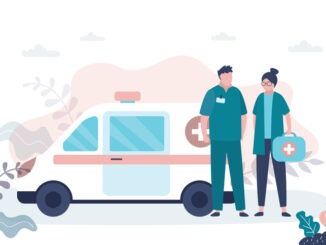
Any introduction of COVID-19 vaccination certificates or passports must have ‘zero impact’ on GP workload, to allow GPs to continue to focus on delivering vital patient care the Royal College of GPs has said
In evidence submitted to the government’s review into a possible COVID-status Certification Scheme, the RCGP has expressed concerns that involving GPs and other members of the practice team in facilitating such a certificate, would only intensify ‘worryingly high’ workload pressures already facing the profession.
GPs and their teams are currently playing a leading role in delivering the COVID vaccination programme – around 75% of vaccinations in England have been administered in primary care – as well as tackling a ‘business as usual’ workload that is higher than it was before the pandemic. It is expected that general practice workload will continue to rise as GP teams support patients in the community, whose physical and mental health has been directly or indirectly impacted by COVID-19.
The College has warned GP involvement in delivering any proposed COVID-status Certification Scheme, would risk burying GP teams in ‘cumbersome’ red tape, exacerbating their workload and diverting valuable time away from patients in need of care.
The submission to the review also emphasised the importance of considering:
- the impact of health inequalities on the potential domestic use of vaccine certificates to access services and venues, particularly given the lower rates of vaccine uptake amongst some BAME communities and lower income groups compared to the national average;
- the need for appropriate solutions to tackle issues of digital inequality and protect data privacy that may arise as a result of the NHS App or another digital platform being used as the primary mechanism for the certificate;
- and if certification is taken forward in England, for comparable systems to be developed across the UK in consultation with governments in Scotland, Wales and NI.
If given green light, the RCGP is calling for representatives of general practice to be consulted across all four UK nations, during all stages of the scheme’s development, to ensure its implementation does not further exacerbate general practice workload – and that appropriate plans and resources are in place to ensure certification of a COVID vaccination status is easily accessible to everyone.
Professor Martin Marshall, chair of the Royal College of GPs, said: “GPs and our teams are currently working incredibly hard delivering the COVID-19 vaccination programme alongside the usual care and services our patients rely on.
“Whilst the College is not necessarily opposed to the introduction of some sort of opt-in proof of vaccination document to allow for international travel, it must not become the role of GPs and our teams to issue these. It would not be sensible for GPs, or any other members of the practice team, to spend their time on cumbersome red tape that will take them away from patient care.
“Our concern about introducing certification for domestic use is that this risks negatively impacting on some patient groups more than others and by doing so widening existing inequalities, including health inequalities, in society. At the very least we would want to see a robust and accessible alternative to vaccination status certificates to ensure groups with lower than average vaccine uptake rates are not unduly disadvantaged.
“If a certificate is introduced then the idea of incorporating it into a digital platform, such as the NHS App, seems sensible as long as appropriate safeguards are in place to ensure confidential patient data is secure, particularly given that mobile phones may be susceptible to security breaches.
“Furthermore, measures would need to be introduced to minimise the risk of widening health inequalities. Alternative proof of vaccination must be available for those who don’t have smartphones or are simply less tech-savvy – and consideration must also be given to patients who have been unable to have a vaccination.”


Be the first to comment